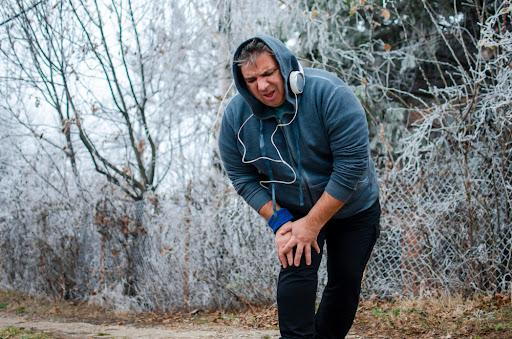15 Tips For Managing Sciatica Pain During the Colder Months

- posted: Oct. 25, 2023
As the temperature drops and the days get shorter, many people with sciatica brace themselves for increased discomfort and pain. Sciatica, a condition characterized by sharp, shooting pain that radiates along the sciatic nerve, can be exacerbated during the colder months due to a variety of factors. However, there are strategies and lifestyle changes that can help you manage sciatica pain and find relief during the winter season.
1.Stay Warm
One of the primary challenges of managing sciatica pain in colder weather is dealing with muscle stiffness and tension. Wearing warm clothing, including layers and thermal materials, can help keep your muscles relaxed and reduce the chances of exacerbating your sciatic pain.
2.Keep Moving
While it’s tempting to hibernate during the colder months, staying physically active is crucial for managing sciatica pain. Gentle, low-impact exercises like walking or swimming can help improve blood circulation and keep your muscles from becoming too tight. Stretching exercises, especially those targeting the lower back and legs, can also provide relief.
3.Maintain Good Posture
Poor posture can put extra pressure on your sciatic nerve and worsen your symptoms. Be mindful of your posture, especially when sitting for long periods. Ensure that your workspace is ergonomically designed, and use lumbar support cushions if needed.
4.Heat Therapy
Applying heat to the affected area can help alleviate pain and relax the muscles. Use a heating pad or heat blanket during the colder months. Heat not only provides immediate relief but also promotes healing.
5.Anti-Inflammatory Diet
Incorporate foods that have anti-inflammatory properties into your diet. Omega-3 fatty acids found in fish, turmeric, ginger, and foods rich in antioxidants can help reduce inflammation and potentially ease sciatica pain.
6.Stay Hydrated
Dehydration can lead to muscle cramps and exacerbate sciatic pain. Make sure to drink an adequate amount of water to keep your muscles and nerves functioning optimally.
7.Manage Your Weight
Extra weight can put pressure on your lower back and aggravate sciatica pain. Maintaining a healthy weight through proper diet and exercise is essential for minimizing discomfort.
8.Proper Footwear
Wearing shoes with proper arch support and cushioning can help distribute your body weight more evenly and reduce strain on the sciatic nerve. Avoid high heels and unsupportive shoes, especially during the colder months when you may be walking on uneven or icy surfaces.
9.Sleep Comfortably
Invest in a comfortable mattress and pillows that provide adequate support for your back and legs. Proper sleep posture is vital for managing sciatica pain.
10.Stress Reduction
Stress can exacerbate sciatica pain. Practice relaxation techniques such as deep breathing, meditation, and yoga to reduce stress levels, which can help relieve pain and improve your overall well-being.
11.Medication and Medical Intervention
In some cases, over-the-counter or prescription medications may be necessary to manage pain and inflammation. Consult with a healthcare professional for guidance on suitable options. Physical therapy and chiropractic care can also be beneficial in managing sciatica.
12.Warm-Up Before Activity
Before engaging in physical activities or outdoor tasks, make sure to warm up your muscles. Stretching and gentle exercises can help prevent sudden exacerbation of sciatica pain.
13.Avoid Excessive Sitting:
Sitting for long periods can aggravate sciatica. If you have a desk job, take breaks to stand and stretch regularly. Utilize a standing desk if possible to reduce pressure on the lower back.
14.Be Cautious with Cold Weather Activities:
If you enjoy winter sports, be cautious and take steps to prevent injury. Proper equipment, warm clothing, and careful movement can help avoid exacerbating sciatica pain during cold-weather activities.
15.Naperville Rehab Clinic
Managing sciatica pain during the colder months requires a holistic approach. By staying warm, maintaining an active lifestyle, paying attention to your diet, and adopting healthy habits, you can minimize the impact of the condition on your daily life. At Naperville Rehab & Medical Clinic, we have extensive experience in treating sciatica and the underlying conditions that cause this painful condition. Call us today at (630) 961-1888 or simply click here to request your appointment online.

